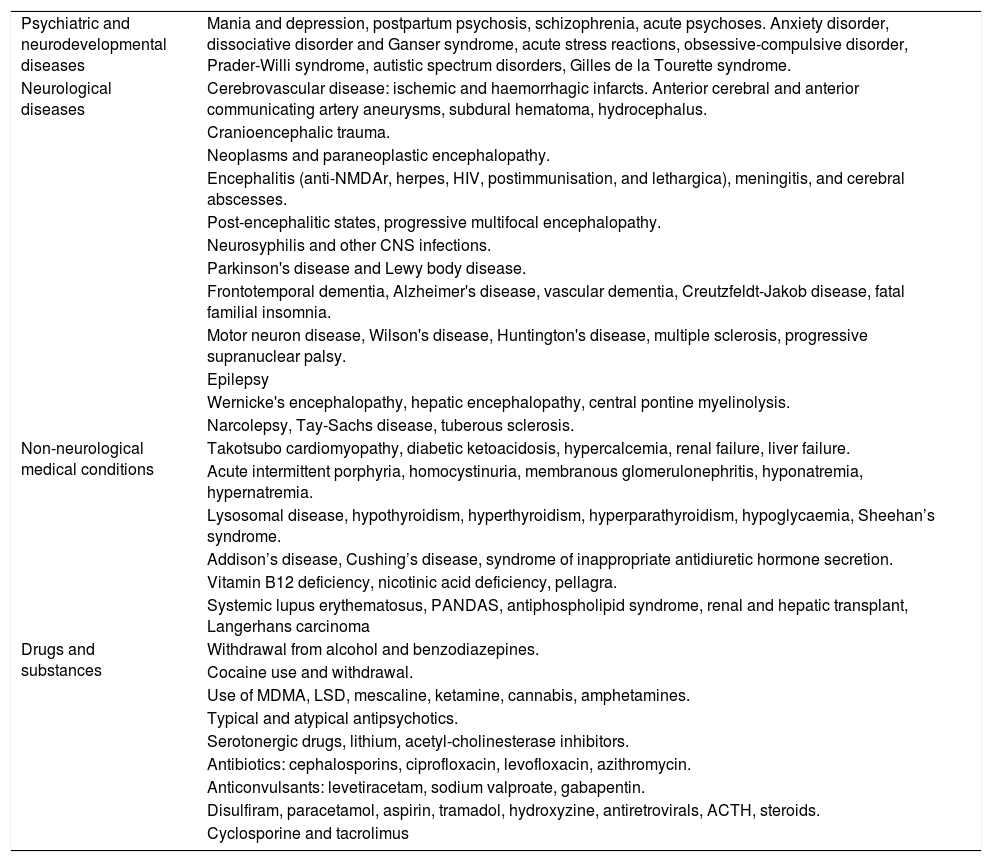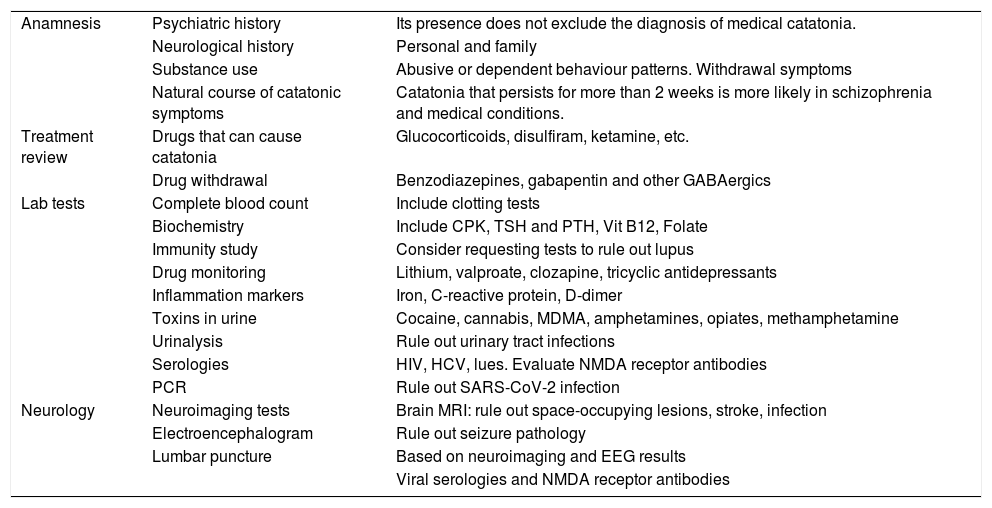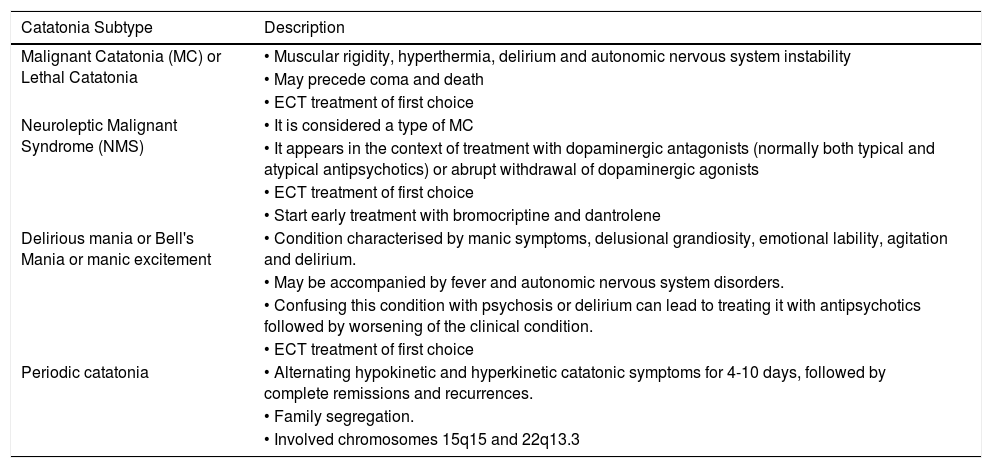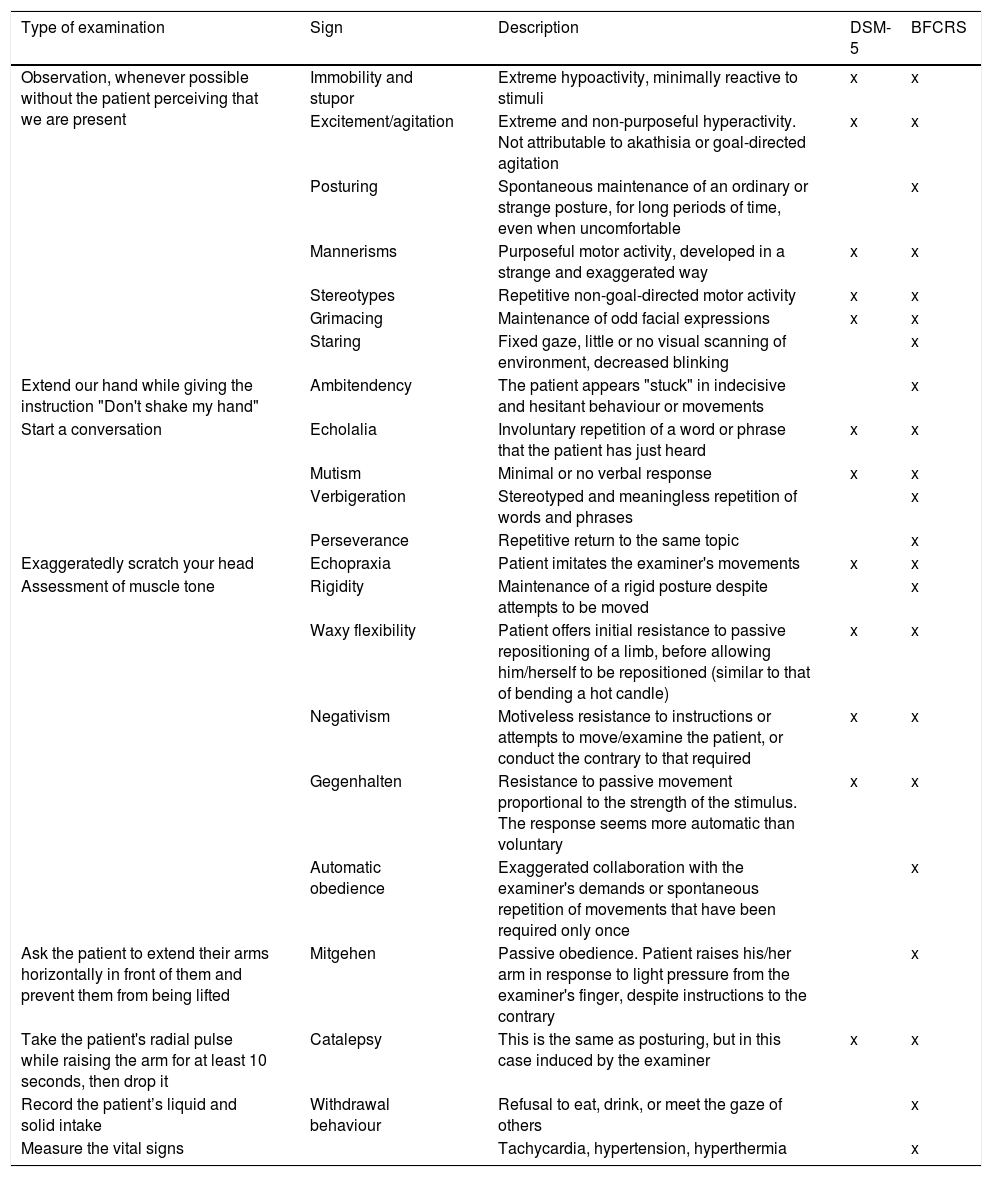Catatonia is an undertreated and underdiagnosed neuropsychiatric syndrome whose prognosis is benign if treated early, thus avoiding possible complications and compromising the health of patients. The latest epidemiological studies indicate a prevalence of catatonia of 9.2%, being frequent in medical pathologies (especially neurological ones), as well as in psychiatric pathologies. The use of validated scales is recommended for its diagnosis, to be able to measure the severity and response to treatment. Once catatonia has been identified, it is necessary to perform a protocolized diagnostic study of the underlying aetiology («Catatonia Workup»). Treatment of choice is benzodiazepines and electroconvulsive therapy. In recent years, new therapeutic alternatives such as non-invasive transcranial magnetic stimulation have emerged. In this review we propose several initiatives to promote the dissemination and knowledge of catatonia in the clinical setting.
La catatonia es un síndrome neuropsiquiátrico infratratado e infradiagnósticado cuyo pronóstico es benigno si se trata de forma precoz, evitando así posibles complicaciones y el compromiso de la salud de los pacientes. Los últimos estudios epidemiológicos señalan una prevalencia de catatonia del 9,2%, siendo frecuente tanto en las enfermedades médicas (especialmente en las neurológicas), como en las psiquiátricas. Es recomendable el uso de escalas validadas para su diagnóstico y poder medir la gravedad y la respuesta al tratamiento. Una vez identificada la catatonia, es necesario realizar un estudio diagnóstico protocolizado de la etiología subyacente («Catatonia Workup»). El tratamiento de elección son las benzodiacepinas y la terapia electroconvulsiva. En los últimos años, han surgido nuevas alternativas terapéuticas no invasivas, tales como la estimulación magnética transcraneal. En esta revisión, proponemos varias iniciativas para fomentar la difusión y el conocimiento de la catatonia en el ámbito clínico.












